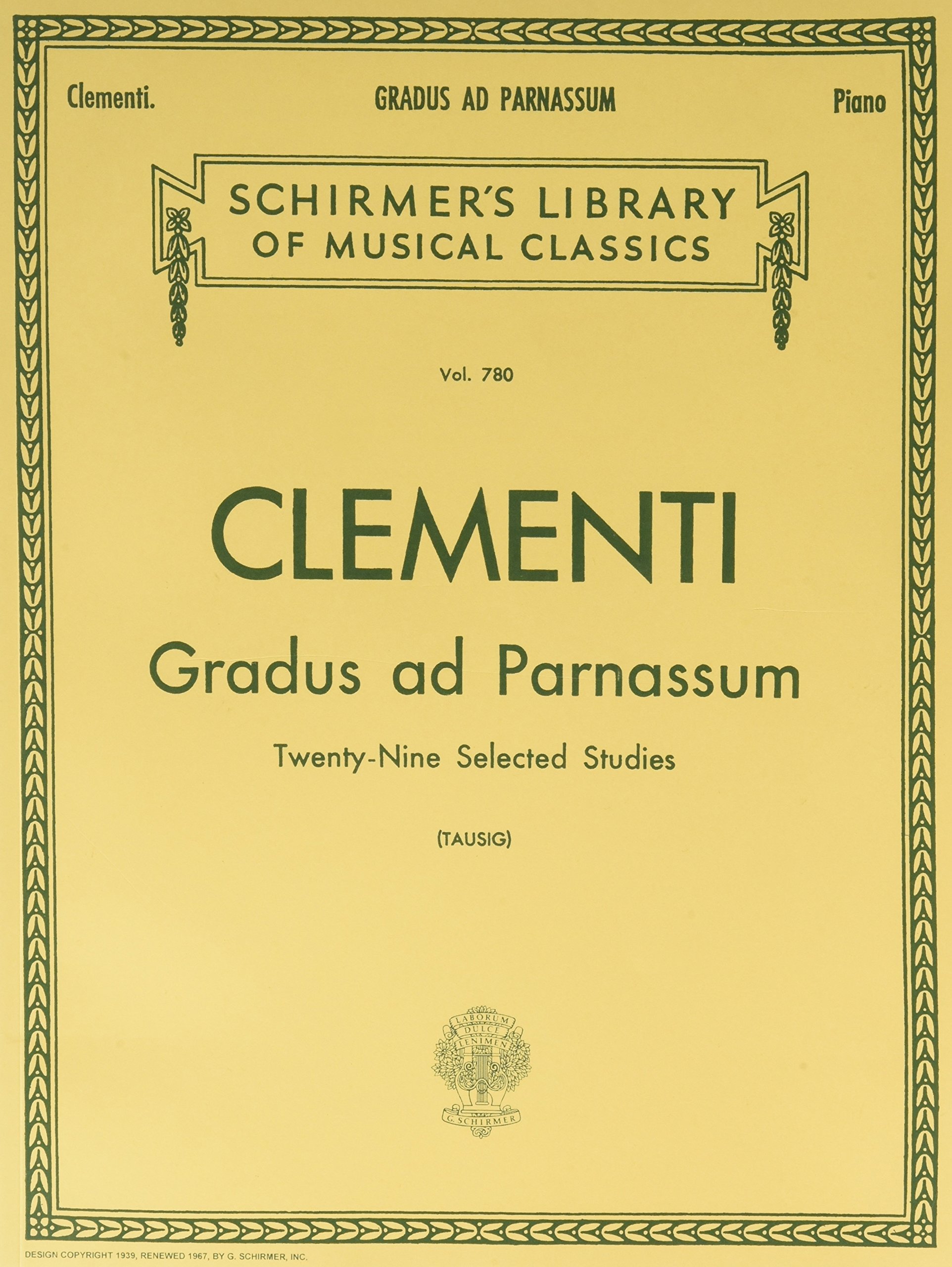




Muzio Clementi: Gradus Ad Parnassum (Schirmer's Library of Musical Classics)
J**N
Great! Compelling! Useful!
I love the exercises.
M**E
Excellent
Excellent
J**N
Five Stars
It's what I wanted.
C**N
I have used and admired these studies for decades.
Muzio Clementi lived a long and productive eighty years. He was born four years before Mozart and died five years after Beethoven. While he was born in Rome he lived most of his life in England where he published music and sold his own brand of pianos. He was a well-regarded composer and performer in his day (he is buried at Westminster Abbey), but his reputation faded as the 19th century wore on. Horowitz, after his wife bought him a set of Clementi's complete works for piano, helped revive his reputation in the 1950s and 60s by programming Clementi sonatas and performing them in recital. Horowitz's Clementi recording is still available today on CD and via download.Mozart had a limited regard for Clementi. After their 1781 duel in front of Joseph II, for which Mozart was awarded 50 ducats, Mozart wrote this to his father on January 26, 1782: "Now about Clementi - He is a very solid Cembalo player. - but that is all. - he has great facility in his right hand - his best passages are Thirds. - part from that he doesn't have a penny's worth of taste or feeling - he is a mere Mechanicus."Be that as it may, we are grateful to have his 110 sonatas and all his other works including the three volumes of his "Gradus ad Parnassum" (the Step to Parnassus). There are 100 works in the entire opus 44 Gradus, but most people are familiar only with the exercises extracted from them by the brilliant virtuoso and Liszt pupil, Cart Tausig (who died before his 30th birthday), who extracted twenty-nine of them along with scales in thirds and published them under the title of the whole and subtitled "29 selected studies". But they give a somewhat false impression of the character of Clementi's magnum opus. In any case, I have used this Tausig edition of Clementi's work since I studied with David Kahn. I have found these works useful, helpful, and of much more interest than the drudgework of many other books of exercises, even though these are exercises rather than compositions as etudes.I recommend them to students wanting to tackle brilliant classical technique, but urge against devoting too much of your musical life to them. To me they are a means not an end. They are a help rather than a goal.That said, you can do far worse than having this in your music library and playing through it from time to time.Reviewed by Craig Matteson, Saline, MI
J**N
Not Gradus Ad Parnassum, but rather selected etudes from it
Misleading title for this book as listed here: It's *not* Gradus Ad Parnassum, but rather selected etudes from that work. You can tell this only by examining the tiny image of the cover. Even if you want to study G ad P etudes, it's not clear which ones were selected for this anthology. The only printed text is a biography of Clementi, with no information on the which etudes were used.
F**O
Método indispensável
Uso o método de Muzio Clementi para recuperação e melhoria de técnica pianística após anos afastada do instrumento. Básico e ao mesmo tempo progressivo.
P**N
good
good
Trustpilot
4 days ago
3 weeks ago